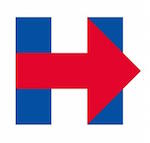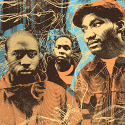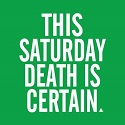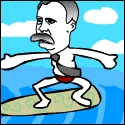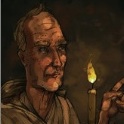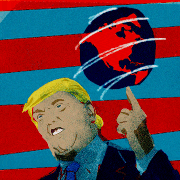|
It's probably not really what you're looking for, but you might want to look into transitional justice. Wiki posted:Transitional justice generally refers to a range of approaches that states may use to address past human rights violations and includes both judicial and non-judicial approaches So, it's about truth commissions, tribunals, reparations, reforms, etc. I don't really know any decent books or articles, but there we go.
|
|
|
|

|
| # ? Jun 4, 2024 02:00 |
|
I apologize for reiterating a request for a recommendation that has already been made earlier in this thread, but I'm also looking for a good book on the Israeli-Palestinian conflict, for someone who only has a very basic understanding of the history. I read the first fifty pages of Finkelstein's Image and Reality of the Israel-Palestine Conflict and I've concluded that it's a bit overkill for me--I still plan on reading it once I establish a more fundamental understanding of the conflict, as it seems well researched and has some excellent information, but until then I'm seeking something a little more entry-level. Can anyone help me out?
|
|
|
|
If you only have a basic understanding of history then you might be better served by starting with a history book about the Middle East. To really understand anything going on in the Middle East today I'd argue that you need to go back to at least the 1870s when the Ottoman Empire was entering terminal decline and Britain, France and Russia were exercising increasing influence in the region. The Ottoman Empire fell apart during the First World War (1914-1918) and then Britain and France carved up the remnants and formed them into the various countries that remain recognizable on the map today. However, they pursued this policy in a way that intentionally cut accross ethnic lines. "Iraq", for instance, doesn't correspond to any pre-existing administrative entity within the Ottoman Empire. Rather its cobbled together from several Ottoman provinces as part of a classic British imperial strategy of divide and conquer. The decision to invest political power in the demographically smaller group - in Iraq's case the Sunnis - is also a legacy of British imperialism. The reason I bring this up is because all of this history - as well as Britain's subsequent actions between the 1920s and 1947 - are really important to understand both the Middle East in general, and Israel-Palestine specifically. Think about reading a generalist work like Peter Masfield and Nicolas Pelham's "A History of the Middle East" before delving into a more specific treatment of the Israel-Palestine conflict. The context will be really helpful.
|
|
|
|
Helsing posted:If you only have a basic understanding of history then you might be better served by starting with a history book about the Middle East. To really understand anything going on in the Middle East today I'd argue that you need to go back to at least the 1870s when the Ottoman Empire was entering terminal decline and Britain, France and Russia were exercising increasing influence in the region.
|
|
|
|
FadingChord posted:Are there any good books (hell, any books or articles at all) about the effect armed conflict has on elections or political culture/institutions in general? It can be country-specific or broad. Sup. That is a vague topic, but it so happens that I'm in an International Law class right now and I can make a recommendation. Robertson, Geoffrey Crimes against Humanity: The Struggle for Global Justice While a LOT of this big book won't be about what you're looking for specifically, there are some strong sections regarding political stability in transitional, post-conflict areas. It's well written too; not too heavy or stuffy. Pretty interesting stuff. It's more of a broad examination of human rights law tho. Get it from your local library or something.
|
|
|
FadingChord posted:Are there any good books (hell, any books or articles at all) about the effect armed conflict has on elections or political culture/institutions in general? It can be country-specific or broad. Samantha Power's A Problem From Hell is a pretty good text about the politics of genocide in the modern era, and how the West has repeatedly ignored, or even facilitated, the actions of genocidal regimes. It's pretty America-centric though, about the effect public perceptions of genocides had on U.S. administrations, from Rooselvelt up to Clinton.
|
|
|
|
|
I'm interested in some authentic accounts of what exactly happened in the 1970s in Britain? I remember a couple of books about it but I can't find them. The only clue I could give was that somebody reviewed either one or both of them on amazon, and recommended reading both together in the review.
|
|
|
|
When the Lights Went Out: Britain in the Seventies by Andy Beckett is good.
|
|
|
|
Seams posted:When the Lights Went Out: Britain in the Seventies by Andy Beckett is good. I can't recommend this one enough, it's one of the best books I read last year (and fairly cheap on kindle!)
|
|
|
|
Seams posted:When the Lights Went Out: Britain in the Seventies by Andy Beckett is good. Yeah, I enjoyed this book.
|
|
|
|
Just finished The Party: The Secret World of China’s Communist Rulers by Richard McGregor. As most China observers will tell you, Chinese politics is a confusing mess. I would even go as far as to say it is this way by design, to prevent participation by the governed. The government keeps an extremely tight lid on internal information, and governs in cryptic slogans like “scientific development”. The great majority of Chinese people would struggle to explain these you put them on the spot. You could live for decades in China and not know the slightest thing about how it is ruled. The problem is further compounded by the fact that the very people who would be in the best position to explain how China works, have no interest in divulging the information, or are prevented from doing so by the oppressive censorship of the state. IMO, the biggest tragedy of the pervasive media and speech control of the CCP is that foreign observers now have a virtual monopoly on reliable and accessible commentary about Chinese politics. That’s not saying they don’t do a good job. Patrick Chovanec, for example, wrote an excellent primer on the Chinese leadership change last year, and our very own BrotherAdso did a magnificent effort post on the Chinese government structure. The problem most of these observers have in common is access. They’re not able to penetrate the Chinese society the same way a native Chinese could. Their limited language proficiency leaves them unable to effectively use Chinese sources, relying on interpreters and second-hand English reports. McGregor does better than most, but he doesn’t scratch all that much below the surface. Most of the book is compiled from readily available sources, so saying it’s about the “secret” world of China’s communist rulers is more than a bit disingenuous. I’ve seen a lot of clever ways to describe the role of the CCP in the Chinese government. Chovanec has called it a sort of HR department, and organization that recruits and vets candidates for government positions. One description I liked was by another guy who reviewed this book, who likened it to a controller chip, “grafted into China's governing structures through party cells throughout government, the military, public companies and even private firms. “ If that sounds Orwellian, it’s because the CCP is pretty loving Orwellian. It’s sickening how the party, even today, permeates every single aspect of Chinese society. Basically, in contemporary China, you’re free to do whatever you want, unless you do something that’s harmful to the interests of the party. If you do so, you’re harassed, made irrelevant or to disappear, whatever the demands of the situation call for. In the words of an academic who McGregor interviews: quote:The Party is like God. He is everywhere. You just can’t see him. The book contains several memorable quotes like this, most of them from his Chinese interviewees. It also does a commendable job in breaking down what’s really going on in China, behind the dull, plastic facade of government propaganda. The eight chapters of the book cover a range of subjects, from the military (Why We Fight), to state businesses (China Inc.), and regional factions (The Emperor is Far Away). I especially liked the chapters on capitalism (Deng Perfects Socialism) and history (Tombstone). The latter looks at the party’s attempts to control historical discourse, even going as far as to claim that it roots stretch back to 1840, the start of the first Opium War. Everything is altered, cut and sliced to support the party’s goal of unquestionable legitimacy. This chapter describes in detail the efforts of Yang Jisheng, a retired Xinhua correspondent, to investigate and account for the deaths during the years of famine that followed The Great Leap forward. Yang worked undercover for years to this purpose, pretending to research grain statistics. His efforts culminated in the publication of Tombstone, a massive two-volume work that proves almost unquestionably what we’ve been aware of for years in the West: that the failed policies of Mao resulted in the deaths of almost thirty million Chinese. Predictably, Tombstone was banned almost immediately after its publication. Deng Perfects Socialism reveals the sham that is Chinese capitalism, and the hoops entrepreneurs have to jump through to break the hold of the SOEs on different sectors. McGregor describes the different fates of two private entrepeneurs who try to enter the aluminum and steel sectors: The guy starting the steel company fails to make the necessary political preparations, and is struck down only a short few years when the SOEs start complaining. However, the aluminum entrepreneur actually succeeds in breaking the monopoly of Chinalco, largely through dirty tactics like exploiting the discordant interests of regional governments, and buying proprietary smelting technology from rogue researchers at the central aluminum institute. This is a good book and necessary reading for anyone working or studying in China. I do have to note though that the book is rather poorly written in parts, including a plethora of excruciating chain sentences that his editor should have removed. The subject matter makes it worth suffering through. Recommended. Edit: Fixed a mistake in the title. french lies fucked around with this message at 07:19 on Mar 23, 2012 |
|
|
|
That sounds like the kind of view I used to have about the CCP and China. But when I went there that view was shattered a little bit. The descriptions you paraphrase appears too blunt. The bureaucracy seemed to be more organic and splintered, a place where everyone is out to gain for themselves, rather than this machine that you described. Decisions seemed to be made on the basis that it makes money rather than a bigger plan or politics. I know there are people in here who've spent a lot more time in China than me and who can correct me if I'm wrong about this.
|
|
|
|
Svartvit posted:That sounds like the kind of view I used to have about the CCP and China. But when I went there that view was shattered a little bit. The descriptions you paraphrase appears too blunt. The bureaucracy seemed to be more organic and splintered, a place where everyone is out to gain for themselves, rather than this machine that you described. Decisions seemed to be made on the basis that it makes money rather than a bigger plan or politics. I know there are people in here who've spent a lot more time in China than me and who can correct me if I'm wrong about this. It's important to note, however, that however "splintered" the CCP is on the inside, the control it exercises over the populace is decidedly totalitarian. Its methods of controlling public discourse and the media doesn't seem to show any of the cracks you are describing. The end result, in any case, is that public speech that contradicts the party's interests is censored extremely effectively.
|
|
|
|
The Partywould have been much improved had the author not descended into vague Red Menace fear-mongering towards the end of the book. While I thought there were a lot of interesting anecdotes concerning the CCP, I think that if he had focused less on reaffirming Western views on a terrifying Communist menace that will consume all humanity it would have improved the book. I don't want to excuse any actions of the Party, but I personally disagreed with the way he framed some of the issues, especially when imagining how they would be perceived by someone with little knowledge of China. Curved fucked around with this message at 02:10 on Mar 23, 2012 |
|
|
|
Curved posted:The Partywould have been much improved had the author not descended into vague Red Menace fear-mongering towards the end of the book. While I thought there were a lot of interesting anecdotes concerning the CCP, I think that if he had focused less on reaffirming Western views on a terrifying Communist menace that will consume all humanity it would have improved the book. This is not directed at you or anyone in particular, but foreigners living in China, and especially white foreigners, are some of the most pampered minorities in the world. They are largely sheltered from the influence of the party and are given preferential treatment from the CCP every step of the way. The saying "there are no small affairs in foreign affairs" comes to mind. What's funny is that the few reviews I've seen of McGregor's book by native Chinese have largely been really positive. Maybe you get a different perspective on things when you actually have to interact with the CCP, sans the protective halo of whiteness.
|
|
|
|
I'm looking for good books that cover the Saudi-Iranian rivalry. Anything?
|
|
|
|
I receivied as a gift today Mao: The Unknown Story by Jung Chang and John Halladay. Is it worth my time?
|
|
|
|
|
Beria posted:I receivied as a gift today Mao: The Unknown Story by Jung Chang and John Halladay. Is it worth my time?
|
|
|
|
Beria posted:I receivied as a gift today Mao: The Unknown Story by Jung Chang and John Halladay. Is it worth my time? Read it with a pile of salt and it can give you an interesting look at how the Chinese opposition to the Party's current reconstruction of Mao thinks. Jung Chang has a strong agenda, but so do most people writing about Mao, so you have to start somewhere. And hey, don't turn down a free book.
|
|
|
|
I'm so glad to have started reading "How to win every argument" by Madsen Pirie recently. Which lists all fallacies, with examples, and how to counter or use them. I take pride in striking down all fallacies I can recognize now.
|
|
|
|
Finished Wen Jiabao: China's Best Actor by Yu Jie. The author is not particularly well-known in the West, but his name should be immediately familiar to China watchers. He's a semi-famous Chinese dissident who recently emigrated to the United States after a lot of harassment from local police and state security. Before he went into exile, he was famously told by one police officer that "there are maybe 200 influential dissidents in all of China, and we could bury them all alive in a single night if we wished to". This is his latest book, which was published in Hong Kong back in 2010. The title is based on a phrase which went into vogue briefly when Wen Jiabao cried on camera during the 2008 Sichuan earthquake. Yu Jie's main thesis, to the extent he has one, is that Wen Jiabao is an "actor" playing a smiling frontman for a brutal gangster regime. He further goes on to claim that the relationship between Wen and Hu Jintao is like that of Zhou Enlai and Mao Zedong, or the emperors and prime ministers of Imperial China. Basically, one is a bad cop that exploits the population for fun and profit, while the other is a good cop that courts a congenial relationship with people and convinces them that the government isn't all bad. Now, I've followed China news for a while now and over time you certainly develop a cynicism for Wen Jiabao's intermittent calls for "reform" and other platitudes of his. These are never followed by action of any kind, and seem more like crumbs handed out to the foreign press corps so they'll get off the CCP's back. My feeling has always been that Wen is as aboard with the CCP's overarching agenda as everyone else on the Politburo, and that he is mainly doing an act for the benefit of the foreign press and disaffected Chinese citizens. But Yu Jie bases this main thesis around a very outdated understanding of Chinese politics. He conflates the China of 2010 with the China of 1958, and implicitly states that Hu Jintao is a dictator like Mao Zedong, when everything we know points towards the central leadership of today being a mainly consensus-driven body. Pretending that the Hu/Wen regime is anything like an imperial or a Mao-style government is plain and simple nonsense. The rest of the book is filled with lazy arguments like this. To put it bluntly, it is bad. Like, really really bad. There's no attempt at any serious deconstruction of Wen Jiabao's public image; indeed, Wen's name is barely mentioned after the first couple of chapters. Rather, it's more of an unfocused collection of rants that shoots off in every possible direction. Other than the book's central thesis, he produces no new information or anything which may be of even slight interest to an informed reader. The book has a vintage dissident feel to it, which is curious since it was written only two years ago, and by someone who actually lived in China up until very recently. He brings up names like Havel and Ceausescu, arguing at several points that the fall of eastern European communist dictatorships in the eighties and nineties somehow foreshadows the coming fall of the CCP. For a person as young as Yu Jie (he's in his early forties), it's weird to see how firmly he's stuck in a twenty-five-year-old defector/dissident narrative. Dissidents in China are often derided as "lackeys" or "running dogs" for America. In Yu Jie's case, I will actually say that this is definitely the case. In the book, he spares no opportunity to suck US cock and essentially believes everything American is superior and the answer to all of China's ills. At one point - I swear to God I'm not making GBS threads you - he even suggests that Wen Jiabao drop his "dead books" and read Hayek's The Road to Serfdom. Yes, the book that inspired Thatcher, Reagan and a million other assholes. That is clearly what the prime minister of China, a nation with one of the largest wealth gaps in the world, needs to read. He's a big fan of Liu Xiaobo and can't shut up about him. When I think about it, this book might actually be more about Liu than it is about Wen Jiabao. Having read some of Liu's writings, I can see why Yu Jie loves him so much: Liu (who was a huge supporter of Bush and the Iraq war) seems to share his uncritical love of America. Rumor has it that Liu received major funding from the US government over the years, and Yu Jie has had similar rumors attached to him as well. Really, the most shocking thing about this weak-sauce of America fanboyism is the price Yu Jie has had to pay for it. A sizable part of the book is devoted to the many encounters he's had with law enforcement and state censors over the years. The level of harassment he was subjected to before he left China is ridiculous. They tapped his phone, read his emails, and had the police follow him and his family everywhere, even on vacation. He was even kidnapped for a short while after LXB received the Peace Prize. Watching interviews with him, this treatment essentially seems to have reduced him to a nervous wreck. It's painful to watch him speak now. In a sense, even though the book is bad and stupid, it drove home for me more than anything the main point in Richard McGregor's book: You're free to do what you want in contemporary China, but the second you do something that is harmful to the party's image or interests, they will gently caress you up. And in recent years, Wen Jiabao has probably contributed more than anyone to the false notion that this gangster state is progressing towards anything resembling freedom.
|
|
|
|
I'm about a quarter into Critique of Pure Reason and a significant portion of it is flying over my head. Anyone care to recommend a good book about this book (or Kant generally) to help me understand more of it?
|
|
|
|
Can anybody recommend any good books on theology and religion. I'm not religious at all but we have recently made some friends that are. while I don't want to be converted, I'm interesting in finding out more about Catholicism, Christianity with a historical focus of what may have *actually* and the different events and things that happen to get to the various 'modern' religions of today. Right now I have very little understanding of the differences between obvious things such as Catholicism versus Anglicanism, so I imagine the stuff that I am after would be at a pretty basic level.
|
|
|
|
rt4 posted:I'm about a quarter into Critique of Pure Reason and a significant portion of it is flying over my head. Anyone care to recommend a good book about this book (or Kant generally) to help me understand more of it? The Cambridge Companion series on major philosophers is invaluable, that's what I used. However, if you navigate one more subforum down, to SAL, they can help you even more there with a question like this.
|
|
|
|
rt4 posted:I'm about a quarter into Critique of Pure Reason and a significant portion of it is flying over my head. Anyone care to recommend a good book about this book (or Kant generally) to help me understand more of it? This book is helpful: http://www.amazon.com/Routledge-Philosophy-GuideBook-Critique-GuideBooks/dp/041511909X/ref=tmm_pap_title_0?ie=UTF8&qid=1334323005&sr=8-2
|
|
|
|
Thanks y'all, I'll check those out. In the meantime, I've ordered Prolegomena to Any Future Metaphysics in which Kant apparently summarizes his earlier book in response to critics and is supposed to be a good primer written by the man himself.
|
|
|
|
rt4 posted:I'm about a quarter into Critique of Pure Reason and a significant portion of it is flying over my head. Anyone care to recommend a good book about this book (or Kant generally) to help me understand more of it? As a start, and a way to find more litterature, check http://plato.stanford.edu/entries/kant/
|
|
|
|
rt4 posted:Thanks y'all, I'll check those out. In the meantime, I've ordered Prolegomena to Any Future Metaphysics in which Kant apparently summarizes his earlier book in response to critics and is supposed to be a good primer written by the man himself. Have you thought about looking for open courseware on this? Based on an extremely cursory search, it looks like there's an Oxford lecture series available free, and I believe MIT makes at least its written course materials available online.
|
|
|
|
Hadn't even thought of it. That's a great idea!
|
|
|
|
french lies posted:Finished Wen Jiabao: China's Best Actor by Yu Jie. Interesting. I wonder if Ayn Rand had written a book about Soviet politicians if it would have ended up sounding similar. It seems like Yu Jie fell into the same trap as Ayn Rand as rejecting the state that oppressed her and her family so thoroughly that they both end up felating capitalism. Even the avocation Austrian Economics is the same.
|
|
|
|
sc0tty posted:Can anybody recommend any good books on theology and religion. I'm not religious at all but we have recently made some friends that are. while I don't want to be converted, I'm interesting in finding out more about Catholicism, Christianity with a historical focus of what may have *actually* and the different events and things that happen to get to the various 'modern' religions of today. A History of Christianity: The First Three Thousand Years by Diarmaid MacCulloch gives an excellent overview of the theology as well as the history of Christianity. I wouldn't describe it as basic, but it's comprehensive enough that you don't need a lot of knowledge going in.
|
|
|
|
Hallucinogenic Toreador posted:A History of Christianity: The First Three Thousand Years by Diarmaid MacCulloch gives an excellent overview of the theology as well as the history of Christianity. I wouldn't describe it as basic, but it's comprehensive enough that you don't need a lot of knowledge going in. I'm (slowly) reading this right now and it is really and excellent book.
|
|
|
|
sc0tty posted:Can anybody recommend any good books on theology and religion. I'm not religious at all but we have recently made some friends that are. while I don't want to be converted, I'm interesting in finding out more about Catholicism, Christianity with a historical focus of what may have *actually* and the different events and things that happen to get to the various 'modern' religions of today. For a good overview of eastern Christianity (specifically Eastern Orthodoxy), I recommend Timothy Ware's The Orthodox Church, especially if you're new to church history. Also recommended is David Bentley Hart's History of Christianity, which has lots of neat pictures along with chapters on lesser known sects of Christianity such as the Nestorians and the Oriental Orthodox (Copts, Armenians, etc).
|
|
|
|
rscott posted:Interesting. I wonder if Ayn Rand had written a book about Soviet politicians if it would have ended up sounding similar. It seems like Yu Jie fell into the same trap as Ayn Rand as rejecting the state that oppressed her and her family so thoroughly that they both end up felating capitalism. Even the avocation Austrian Economics is the same. Of course, the Chinese security apparatus locks up, harasses and beats the poo poo out of people like this, so even if their opinions are juvenile or even reprehensible by my standards, I still support them.
|
|
|
|
sc0tty posted:Can anybody recommend any good books on theology and religion. I'm not religious at all but we have recently made some friends that are. while I don't want to be converted, I'm interesting in finding out more about Catholicism, Christianity with a historical focus of what may have *actually* and the different events and things that happen to get to the various 'modern' religions of today. This isn't quite what you asked for but if you're looking to get a more familiar and nuanced background of the Christian (or Jewish) faith then you might want to check out God: A Biography by Jack Miles. I read it years ago and it was a really fascinating character study of God as he appears in the Tanakh (the Old Testament, but in the original Jewish progression rather than the reformatted Christian one). Its well written and engaging and because it effectively weaves the different books into a narrative I found that I retained a lot more of the information that I would have otherwise. It isn't a book that deals at all with the religious history of Christianity, its purely a look at how God evolves as a character over the course of the books in the Old Testament, but I found it to be a really illuminating. I'm also happy to report that while the book is primarily a literary character study the author is a former Jesuit seminarian with an extremely strong background knowledge on the topics. Where necessary he'll note that a given story appears in three different versions or he'll explain what the scholarly consensus on a contested passage is. He writes a a scholar rather than a true believer and never tries to convert the reader either. Its a very different book than almost anything else you'll read on the subject, but I'd count that as a strength. I admit that I haven't though very hard about Christianity in years, but for a while it was a huge interest of mine (academically, I've never been religious) and this book was a really useful jumping off point.
|
|
|
|
Anyone here know of some fairly neutral literature on companies and corporations? I have The Company: A Short History of a Revolutionary Idea but the lack of rigor and the constant free-market thumping of the authors is starting to piss me off.
|
|
|
Hallucinogenic Toreador posted:A History of Christianity: The First Three Thousand Years by Diarmaid MacCulloch gives an excellent overview of the theology as well as the history of Christianity. I wouldn't describe it as basic, but it's comprehensive enough that you don't need a lot of knowledge going in. Thirding this. Best single-volume history (of anything) I've ever read.
|
|
|
|
|
mdemone posted:Thirding this. Best single-volume history (of anything) I've ever read. Agreed, and Christianity has such a long history full of so many ridiculous things that it makes for a really compelling read.
|
|
|
|
mdemone posted:Thirding this. Best single-volume history (of anything) I've ever read. His book on the Reformation (titled "The Reformation", funnily enough) is also quite good.
|
|
|
|

|
| # ? Jun 4, 2024 02:00 |
|
french lies posted:Anyone here know of some fairly neutral literature on companies and corporations? I have The Company: A Short History of a Revolutionary Idea but the lack of rigor and the constant free-market thumping of the authors is starting to piss me off. Joyce Appleby's The Relentless Revolution: A History of Capitalism is great, but it's not specifically about the history of the concept of the corporation.
|
|
|


